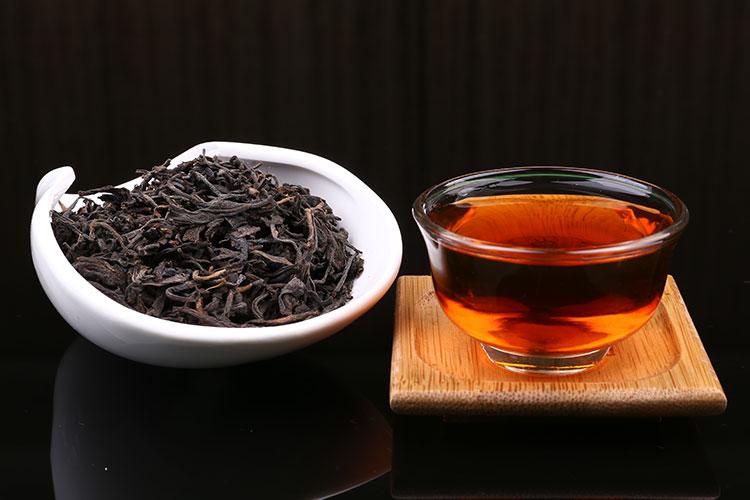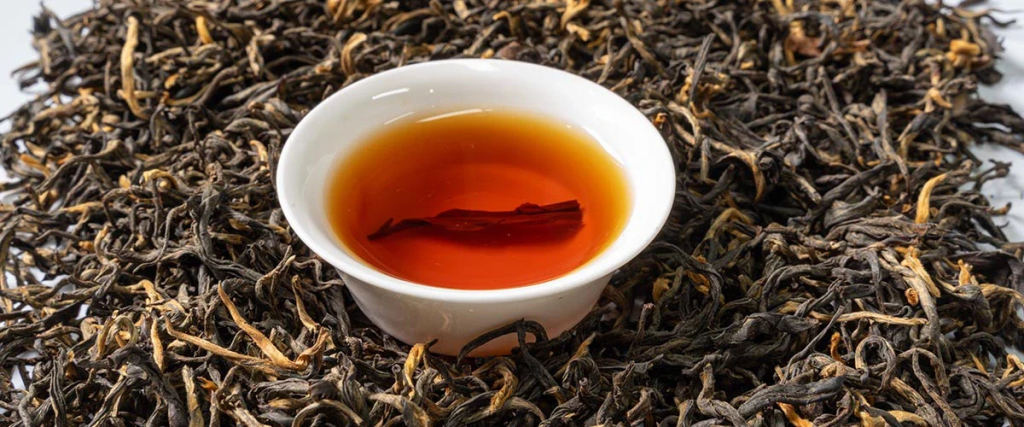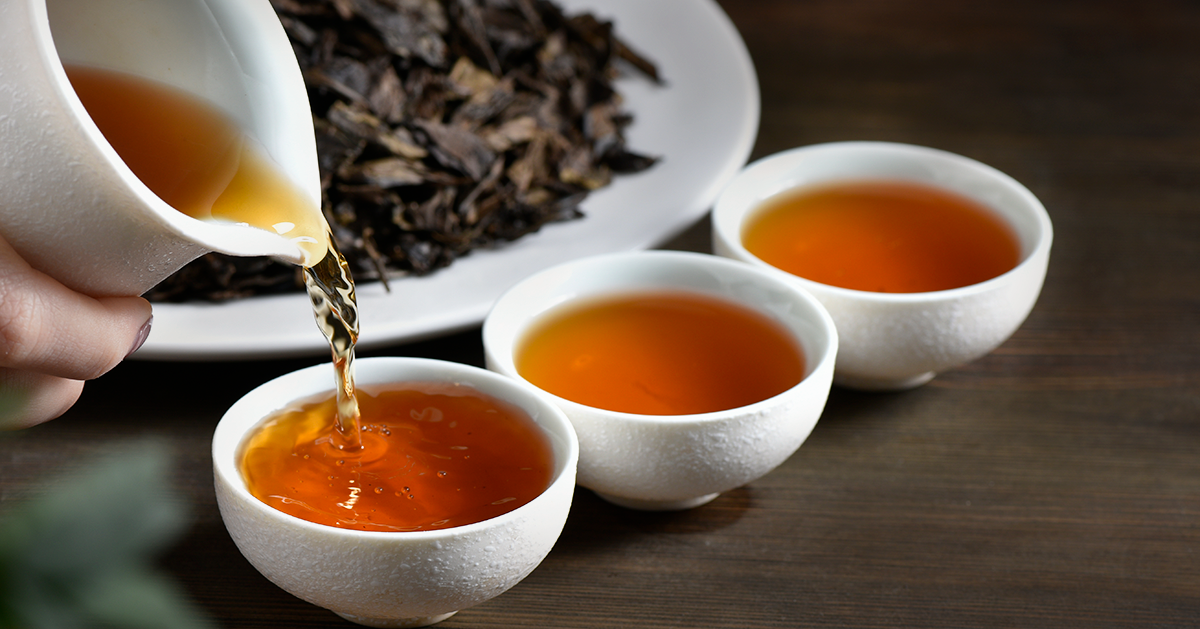Dark tea, a category of post-fermented teas including Pu-erh, Liu Bao, and Fu Zhuan, has been revered in traditional Chinese medicine for centuries. Its unique aging and microbial fermentation process imparts a rich, earthy flavor and enhances the production of bioactive compounds, offering a spectrum of health benefits supported by modern scientific inquiry. Below, we explore dark tea’s therapeutic potential, from metabolic regulation to gut health.

1. Antioxidant Powerhouse
Dark tea’s extended fermentation generates unique polyphenols like theabrownins and gallic acid, which complement residual catechins. A 2024 study in Antioxidants found aged Pu-erh tea extracts exhibit superior free radical-scavenging activity compared to non-fermented teas. These compounds combat oxidative stress, mitigating risks linked to chronic diseases, neurodegeneration, and cellular aging.
2. Metabolic Syndrome Mitigation
Dark tea’s dual action on metabolism is notable. A 2023 clinical trial in Nutrients demonstrated that daily Pu-erh consumption reduced fasting blood glucose and insulin resistance in prediabetic adults. Its polyphenols and microbial metabolites (e.g., lovastatin from Aspergillus fungi) enhance lipid metabolism, while caffeine and theanine synergize to boost fat oxidation. A 2022 animal study in Metabolism further linked dark tea to reduced visceral fat accumulation.
3. Cardiovascular Protection
Dark tea supports heart health through multiple mechanisms. A 2024 review in the Journal of Cardiovascular Pharmacology highlighted its ability to lower LDL cholesterol and triglycerides via inhibiting pancreatic lipase. The tea’s flavonoids enhance endothelial function, while its anti-inflammatory properties reduce arterial stiffness. Emerging research also suggests dark tea may attenuate hypertension by modulating ACE enzyme activity.
4. Gut Microbiota Modulation
The fermentation-derived microbiota in dark tea acts as a probiotic reservoir. A 2023 study in Nature Communications revealed that Pu-erh tea infusion enriched gut Bacteroides and Prevotella populations, enhancing short-chain fatty acid (SCFA) production. These SCFAs reinforce intestinal barrier integrity and reduce inflammation, offering relief for IBS and metabolic disorders.
5. Immunomodulatory Effects
Dark tea’s polysaccharides and theabrownins stimulate immune cell activity. A 2022 in vitro study in Journal of Functional Foods showed enhanced NK cell cytotoxicity against cancer cells. Additionally, dark tea’s antimicrobial peptides (e.g., defensin-like proteins) inhibit pathogens like E. coli and Staphylococcus aureus, as reported in a 2021 Molecules review.
6. Neuroprotective Potential
Theanine and GABA in dark tea synergize to reduce anxiety and improve sleep quality. A 2023 animal study in Behavioural Brain Research demonstrated Pu-erh’s neuroprotective effects against amyloid-beta toxicity, suggesting potential in Alzheimer’s prevention. Human trials, such as a 2020 study in Nutritional Neuroscience, correlate regular consumption with enhanced cognitive flexibility.
7. Antimicrobial and Oral Health
Dark tea’s tannins and flavonoids exhibit broad-spectrum antimicrobial activity. A 2022 review in Oral Diseases noted efficacy against Streptococcus mutans and periodontal pathogens. Traditional use of dark tea as a mouthwash aligns with its ability to suppress halitosis-causing bacteria, as validated in a 2021 Journal of Dental Research study.
8. Anti-Aging and Skin Health
Topical application of dark tea extract shows promise in skincare. Its antioxidants neutralize UV-induced damage, while anti-inflammatory compounds soothe irritated skin. A 2024 study in the Journal of Cosmetic Dermatology highlighted dark tea’s inhibition of collagenase and elastase, preserving skin elasticity.
Conclusion
Dark tea’s medicinal value lies in its symbiotic relationship between microbial fermentation and phytochemical richness. From metabolic syndrome to neurocognitive health, its benefits are increasingly validated by scientific research. As a natural, time-honored remedy, dark tea offers a holistic approach to wellness, though further clinical trials are needed to elucidate dosage and synergistic mechanisms. For those seeking a balanced, gut-friendly beverage with therapeutic potential, dark tea may be a profound addition to a health-conscious lifestyle.



